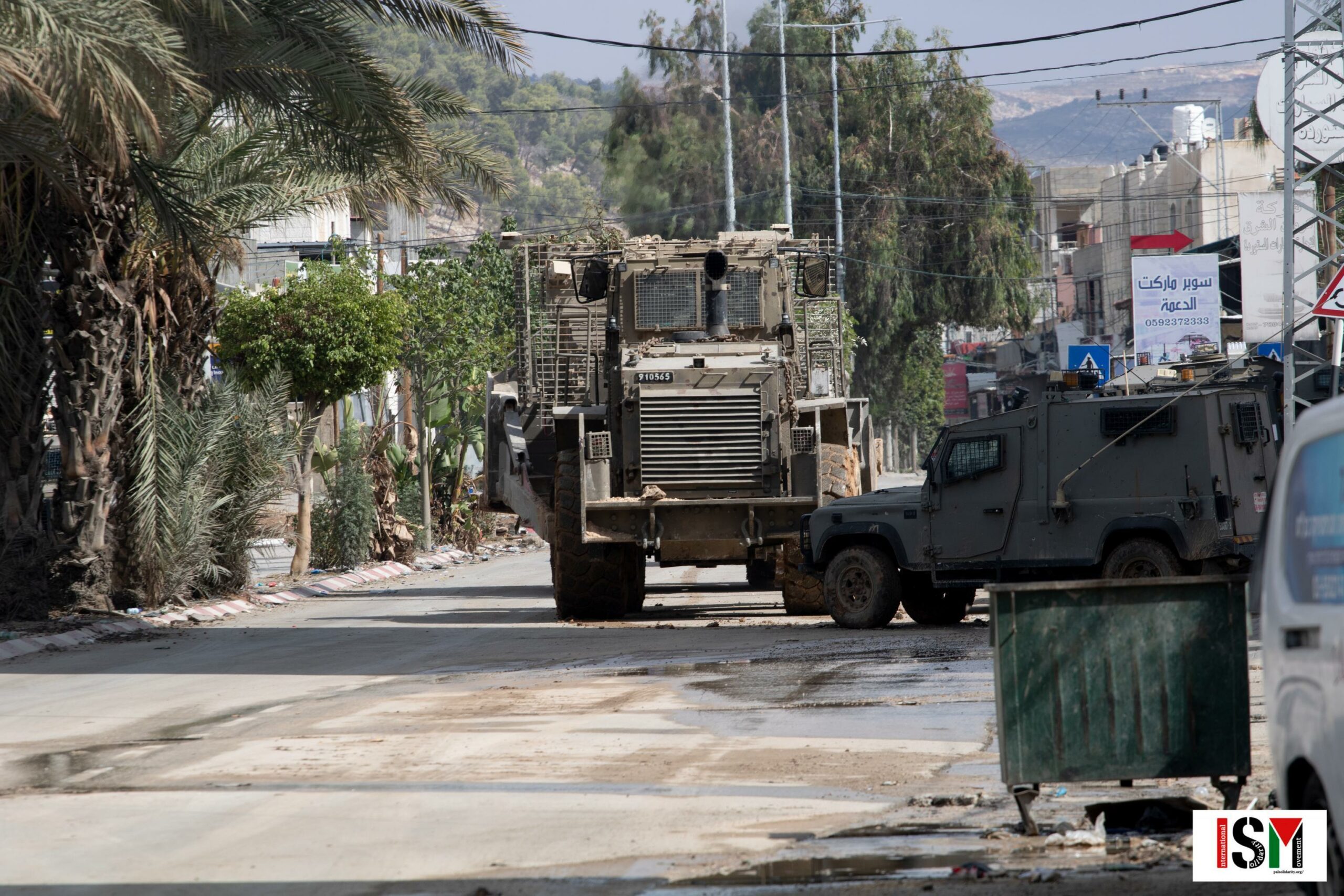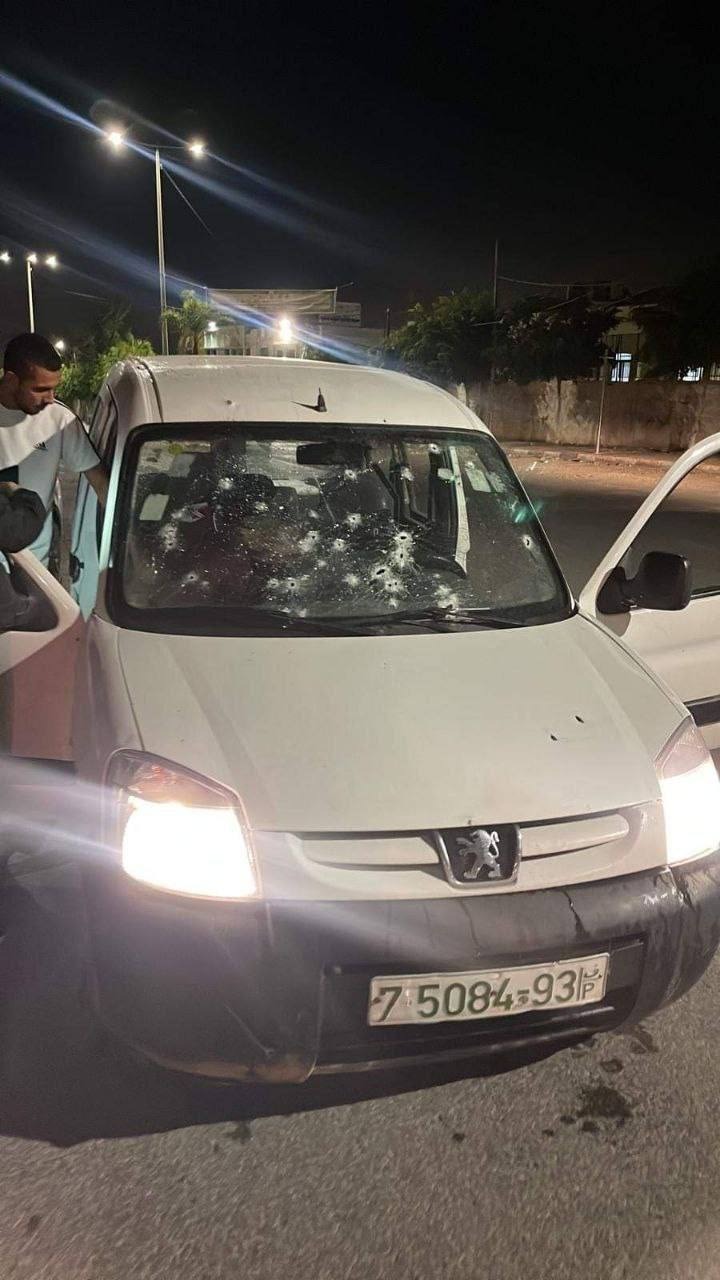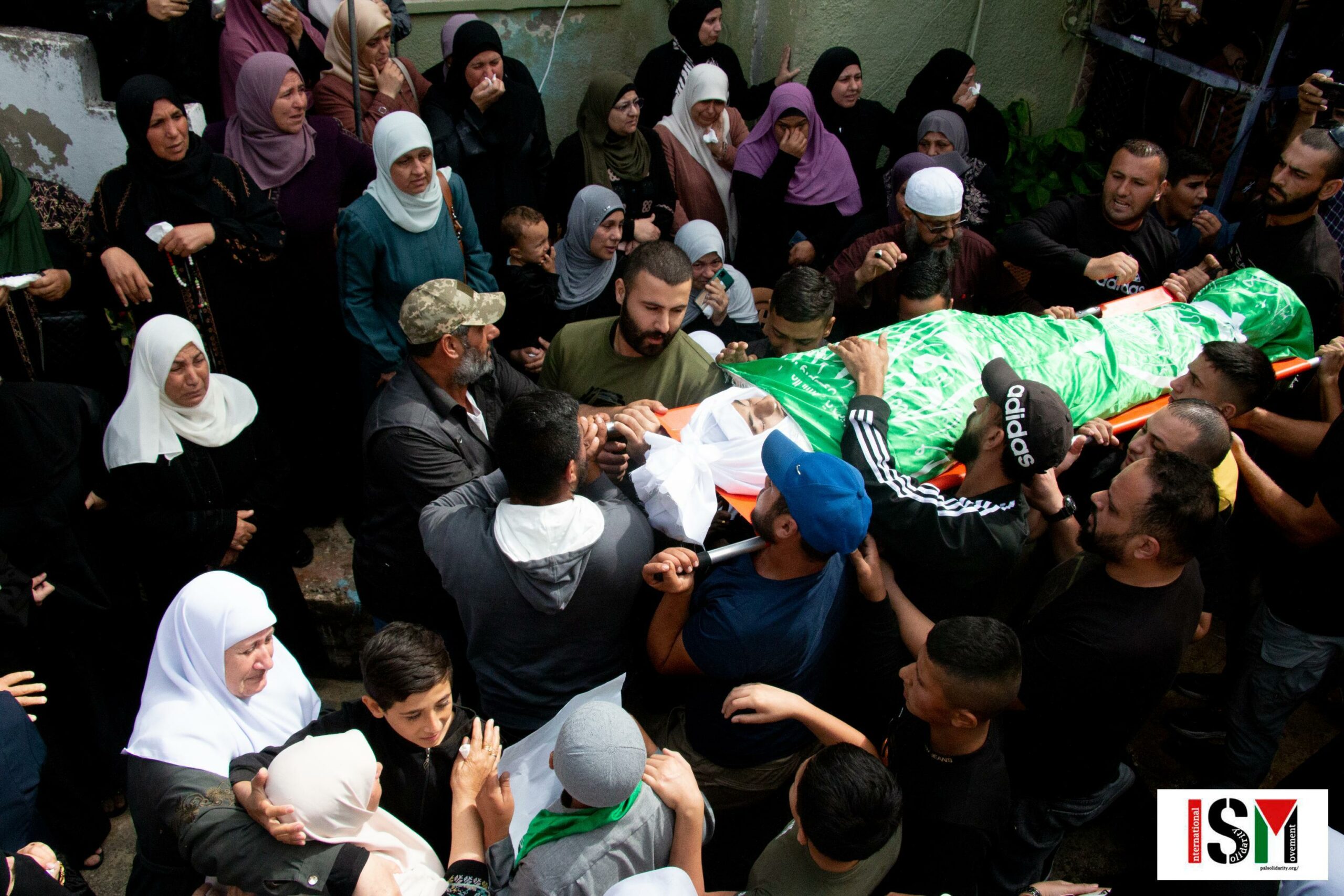Tag: Tulkarm
-
A new massacre in Nour Shams camp, Tulkarm
19 October 2023 | International Solidarity Movement | Tulkarm By Diana Khwaelid The Israeli occupation forces launched a major military assault on the city of Tulkarm, especially on the Nur Shams refugee camp. A curfew was imposed throughout the city for at least 30 continuous hours, and Israeli snipers were deployed in more locations…
-
Israeli snipers target civilians, kill father of 3-year-old in Tulkarm
13 October, 2023 | International Solidarity Movement | Tulkarm By Diana Khwaelid On the evening of Friday, October 13th, 2023, Israeli snipers opened direct live fire on a white civilian car while it was passing near the Sanaoz military checkpoint, in Tulkarm city. Ahmed Abed, who was one of the two passengers in the…
-
Childhood is being killed in Palestine
15 October, 2023 | International Solidarity Movement | Tulkarm By Diana Khwaelid The 16-year-old martyr Mohammed Adwan was fatally wounded by a live bullet fired by an Israeli soldier while participating in a demonstration in solidarity with Gaza that took place last Friday, 13th of October, 2023. Mohammed answered the call to participate in a…



